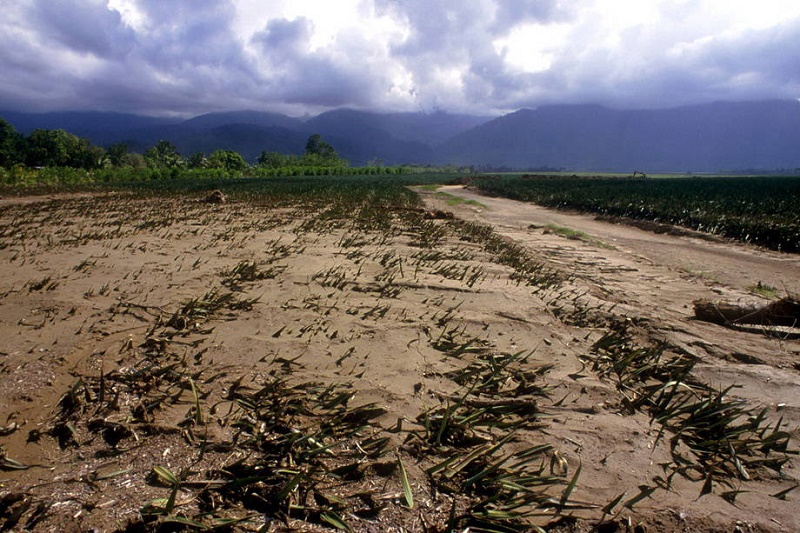FAO book examines climate change consequences for food security and trade
Notícia publicada em:
- 23 de Junho de 2015

Climate change has serious implications for agriculture and food security. Picture: FAO/L. Dematteis
Global warming will have profound implications for where and how food is produced, and will also lead to a reduction of the nutritional properties of certain crops, which will have consequences for policies to combat hunger and poverty and to the world food trade, experts say in a new book of the UN Food and Agriculture Organization (FAO).
“Climate change and food systems” contains the findings of a group of scientists and economists who have made an assessment of the effects of climate change on agriculture and food in the global and regional level in the last two decades.
Climate change increases the challenge of the fast-growing global demand for agricultural products – food, feed and fuel – required to cope with population growth and increased levels of income. Agriculture is highly dependent on local weather conditions and, therefore, is expected to be very sensitive to climate change in the coming years.
“Climate change is likely to increase the growing global inequality, since it is expected that the impact of the negative effects fall upon those countries which are less developed and more vulnerable,” says the book’s editor, Aziz Elbehri, from a Division of FAO.
The authors also cite a recent study that assessed the overall impact of changes in food consumption patterns that use or not irrigation. Some results suggest that the reduction in the consumption of animal products in the human diet has the potential to save water resources needed to feed 1.8 billion people in the world.
The study suggests that while global markets could help stabilize prices and supplies and provide alternative food options for regions affected negatively by climate change, trade alone is not a sufficient strategic adaptation. A strategy of internal adaptation is also needed to allow countries and regions to avoid the strong dependence on imports, which tend to increase vulnerability to price volatility. Another challenge is the need to align trade policy with climate objectives and ensure that trade liberalization plays its role as a coping mechanism, without harming the mitigation goals.
Access the publication by clicking here.
Source: United Nations.




